Tasting the Hattingley wines: Blanc de Blancs, Blanc de Noirs and Classic Reserve, Justin Keay remarks that Simon Robinson did the right thing by giving up his City job and concentrating on the winery full time.
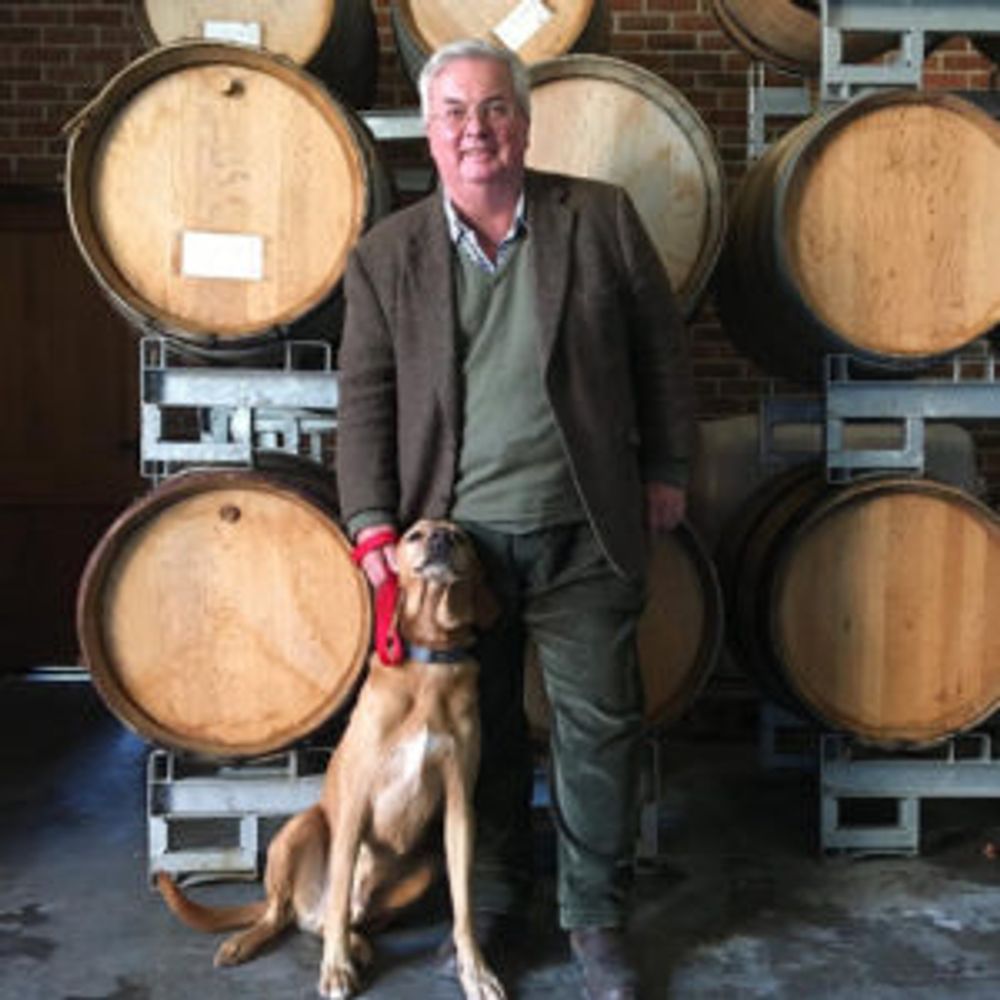
Simon Robinson
“When we planted ten years ago – our first vintage was two years later – I had absolutely no idea we would get to be this big. I thought I was setting up a boutique winery,” says Simon Robinson, chairman of Hattingley Valley Wines, looking across at his state-of-the-art Hampshire winery.
Even on a wintry September morning, Hattingley Valley – located north of Alresford, outside Winchester – is something to behold. By UK standards this is quite a large estate, some 24 hectares (60 acres) of vines on two sites, the chalky soil underneath that inspired Robinson to plant here clearly visible; (Hattingley Valley also source fruit from selected nearby vineyards).
Back in 2008 though, there wasn’t anything here and Robinson admits that when he told others of his plans there was scepticism, not least because this wasn’t exactly renowned as a wine-producing area and his nearest winery neighbour was, well, miles away. And he isn’t even from Hampshire.
But with the winery now producing some 600,000 bottles – of which around one third are for clients that include fellow Hampshire producers Raimes and Cottonworth – Robinson’s investment has turned his boutique dream into something way bigger.
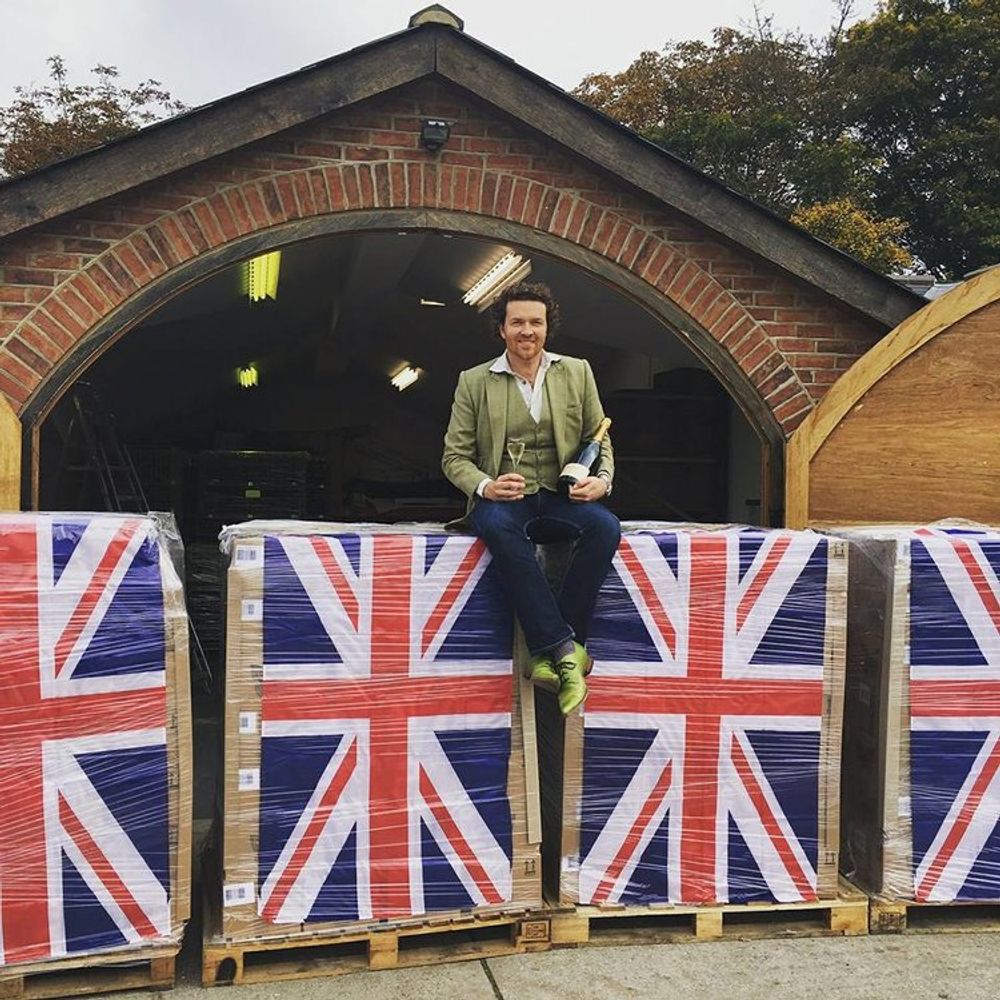
Gareth with the US shipment
Hattingley is today one of the UK’s larger producers, certainly the biggest in Hampshire. It is also, by its own reckoning, the largest exporter, with sales well beyond Europe, to the US and China (16 countries and counting). French Champagne house Pommery chose it to produce its first English sparkling wine Louis Pommery, which was launched in small volumes last year, ahead of the first wines that will be produced next decade from Pommery’s 40 hectare Pinglestone Vineyard, also near Alresford.
Hattingley even provides an exclusive Blanc de Noirs to British Airways to commemorate the airline’s centenary; the wine can be tasted in the First Class Lounge and in first class when the planes are actually flying.
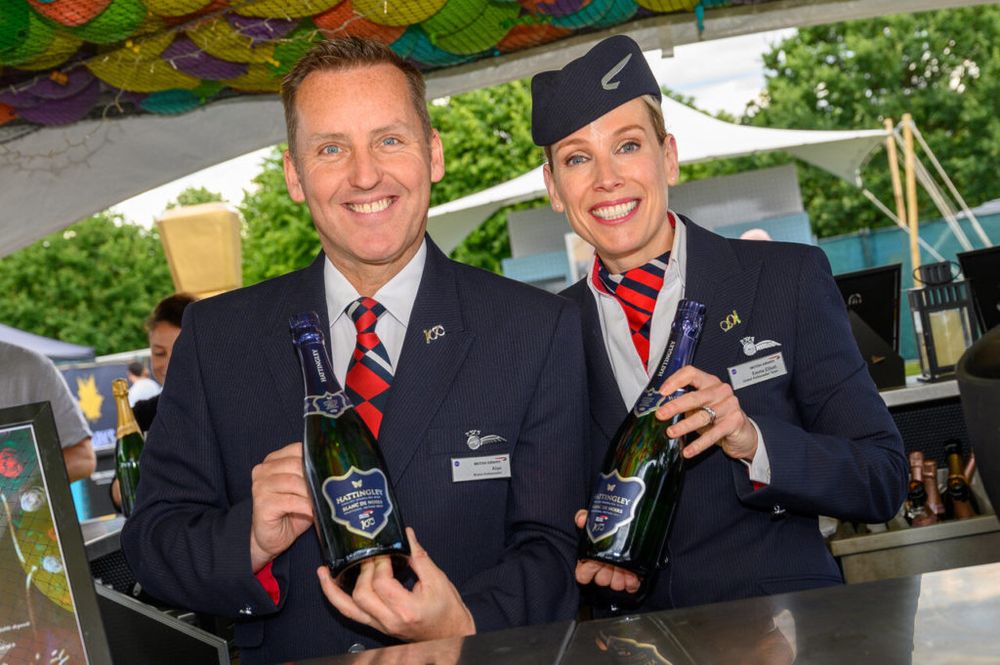
Robinson is also unashamed to fly the flag: the British flag adorns the website and the producer’s motto is Unapologetically British, a phrase blazoned across packaging and billboards, alongside images of all those nostalgic things people used to associate with Britain… bulldogs, red buses, policemen’s helmets, rather than today’s angry Leave demonstrators, packed, late-running commuter trains and understaffed hospitals.
Indeed, Hattingley’s bottle neck collars even declare: “Proudly Made in Great Britain.” To this rattled and disillusioned metropolitan Liberal who has spent much of the past three years apologising for being British, it all seems a bit much. For Robinson it makes perfect sense.
“I always wanted to make sparkling wine that was definitely and distinctively British, that reflected our chalky soil and our climate,” he says.
A key move that really paid off was investing what he admits were large sums in building a state-of-the-art winery, which includes a Coquard press and the latest temperature-controlled tanks. This gave the producer the ability to generate volume but also establish firm quality control, with respected wine-maker Emma Rice at the helm now for several years: Rice has won the UK winemaker of the year award in 2014 and 2016.
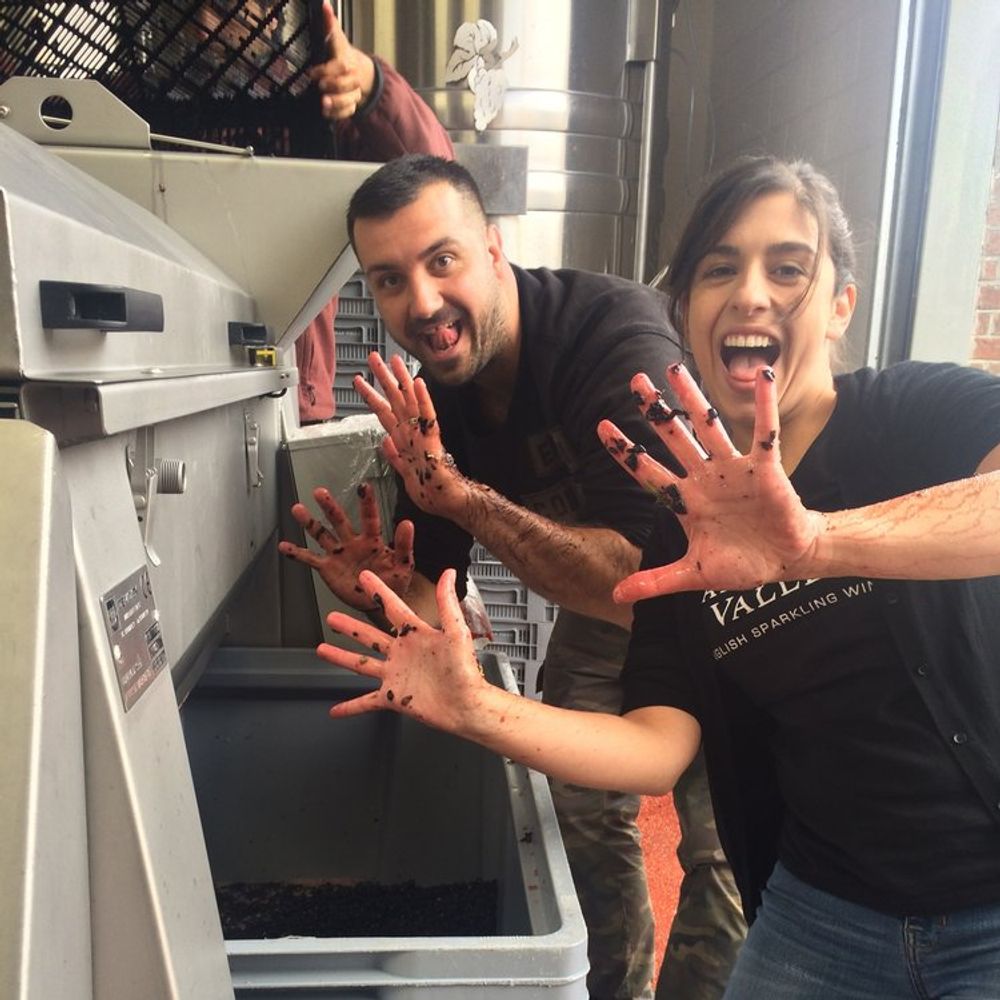
Things have gone so well that Robinson has been able to give up his work as a corporate lawyer for City law firm Slaughter & May – which of course helped fund Hattingley Valley from its early days – to focus on the business full time.
Hattingley’s exquisite Blanc de Blancs 2013 is proof that this was the right move. OK, it is £50 a pop but this is a wine that is a truly a joy to drink, with quality that doesn’t come cheap; made from handpicked whole-bunch pressed grapes and aged on the lees in bottle, with a minimum of five months under cork before release, this is a truly impressive wine.
So too is the Blanc de Noirs, “a sparkling example of the best of modern Britain,” a delicious savoury mousse supports the fine acidity and crunchy fruit in what is a wonderfully complex wine with great character. It’s frankly almost too good for BA.
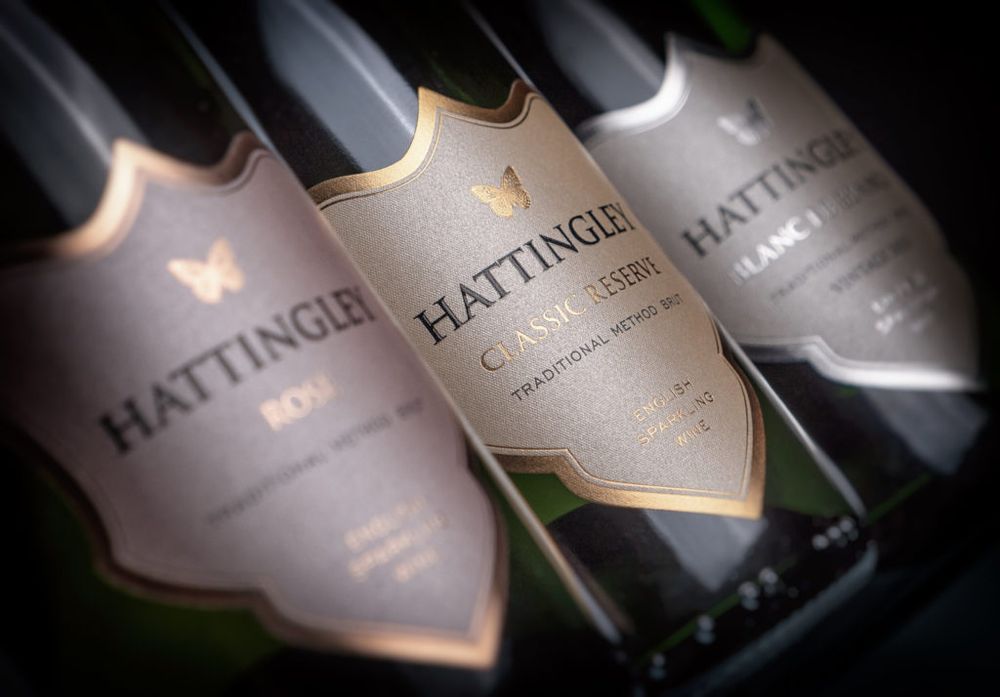
And the Classic Reserve, at £30 a bottle, is also very classy, with an intense pale gold colour and the blend of Chardonnay, Pinot Noir and Pinot Meunier making for a well-balanced and moreish wine.
The Hattingley team is confident – quietly – about this year’s harvest, although this being the UK, it is still early days.
“Disease pressure has been high but we have stayed on top of it and we currently anticipate a harvest about the same (or maybe slightly smaller) than last year. It will be later though and probably last the three weeks of October- which is actually back to normal as last year was early,” he says, adding that quality should be good but remains rather weather dependent.
Bullish about the future of British wine
As chairman of industry body GB Wines, Robinson is upbeat about the future for the industry. This despite Brexit which as in other areas of the economy could impact on investment, and will probably make finding overseas markets more difficult amidst the chaos of new regulatory and tariff walls.
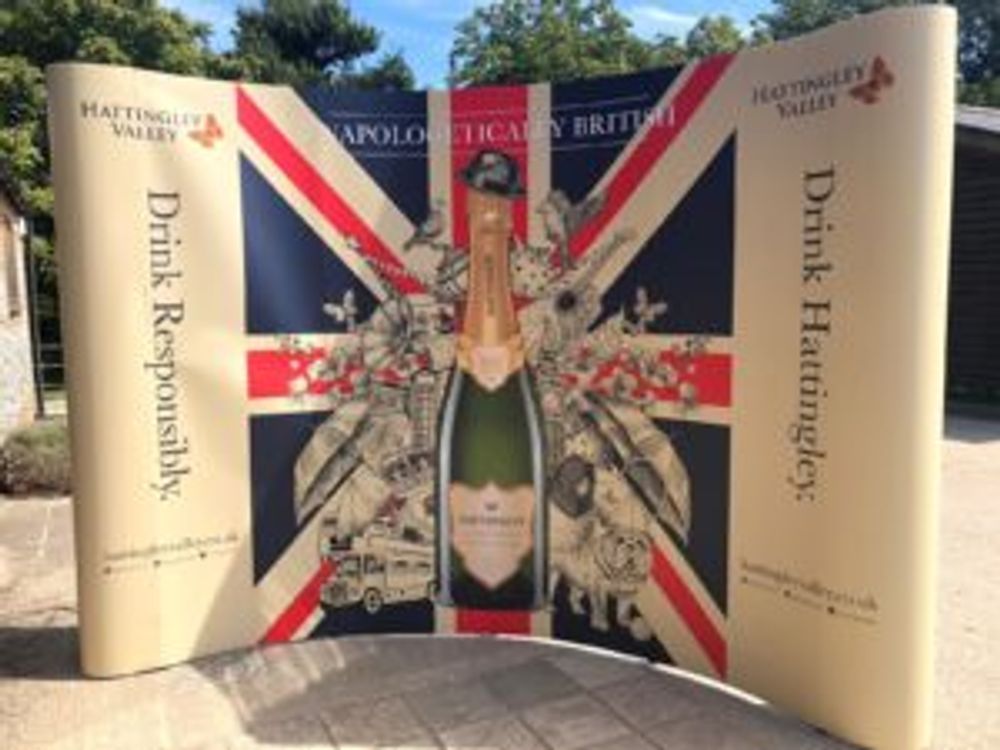
“I think the British wine industry will continue growing and maturing. There will be a lot more wine coming onto the market in three to five years time so we will need to enhance our distribution capabilities but I am reasonably confident people are thinking about that, particularly among the larger producers with their increased interest and capability in exports. Brexit and a weak pound will probably help significantly here,” he says.
He also sees increased interest from both producers and consumers in boosting production of still wine, with a lot of experimentation currently taking place as to which varieties work best and where. Indeed, Hattingley is now looking to produce its own first still wine – a Chardonnay – although winemaker Emma Rice insists this won’t be certain until this year’s harvest is in.
“Things are looking good but you never know until you’ve had a really good look at the grapes. We’ll just have to see,” she says.
It all comes back to Robinson and Rice’s firm commitment to quality, on which they refuse to compromise.
“When you drink an expensive high quality wine, they always say it is the quality you remember and not necessarily the cost. And I think that’s true,” he says.






























